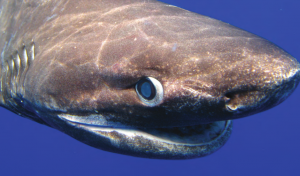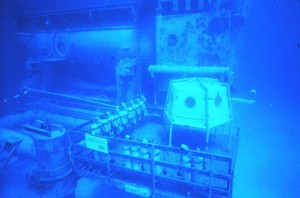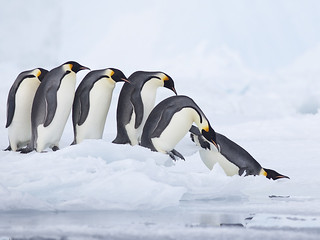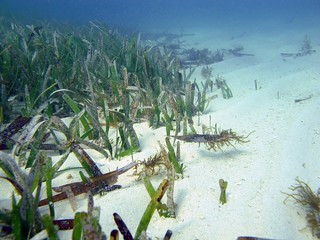Too Much Love for the Fish Everyone Hates
/in Featured, Ocean Doctor's Reflections/by Ocean Doctor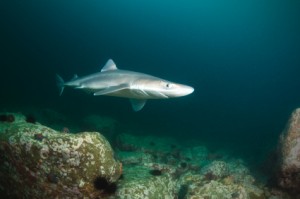
The much-maligned, misunderstood and now treasured “trash fish,” the spiny dogfish (Squalus acanthius). Photo: © Boris Pamikov
It was a sadly typical meeting of the Board of Collier County (Florida) Commissioners in the late nineties. As the meeting droned on, I tuned it out and fell into deep concentration, obsessively rewriting now long-forgotten remarks I would deliver to the Commission about conservation in Southwest Florida on behalf of The Conservancy of Southwest Florida where I was president and CEO. Our environmental policy director, Michael Simonik, suddenly elbowed me, “Can you believe this?” he gasped. As I looked up, Commissioner Barbara Berry was on her soapbox delivering a monologue, and like Michael, I was stunned to hear what she was saying. She soared into hyperbole to sing the praises of the land developers, declaring Southwest Florida far better than when she arrived, and with a look of disgust tinged with horror, told us how awful it was before the developers came, with all of these unsightly “tangles” of trees and messy vegetation. Nature run amok. Thank god the developers came along and made Southwest Florida a better place, with the neatly manicured lawns of its gated communities (not to mention highest number of golf courses per capita in the world). But as I gazed around the room, there were heads nodding. And I learned something. Read more
What Every Good “Shark Week” Fan Should Read While They Watch
/in Featured, Ocean Newswire/by Ocean DoctorVANCOUVER, BRITISH COLUMBIA, CANADA. August 13, 2012 – At the close of the annual meeting of leading American shark and ray scientists, the IUCN Shark Specialist Group (SSG) is releasing the first compilation of conservation status assessments for nearly 300 sharks, rays, and chimaeras (collectively known as chondrichthyan fishes) found in North American, Central American, and Caribbean waters conducted using the IUCN Red List of Threatened Species criteria. The report and supplementary materials can be downloaded from the IUCN website.
The report documents that 13.5% of the region’s shark, skate, and chimaera species qualify for one of the three “threatened” categories — Critically Endangered, Endangered, Vulnerable — associated with an elevated risk of extinction. Nine rays and 20 sharks qualify as Vulnerable. Sixteen percent of species are classified as Near Threatened, 27% as Least Concern, and 43.4% as Data Deficient. Read more
RETURN to the Arctic Depths – An Ocean Doctor Special Presentation
/in Bering Sea Expedition, Featured, News, News & Announcements/by Ocean DoctorIn 2007, Greenpeace launched a groundbreaking expedition to explore the two largest underwater canyons in the world, in the heart of the Bering Sea. It was the first time manned […]
60 MINUTES “The Gardens of the Queen” Named Finalist at BLUE Ocean Film Festival 2012
/in Cuba, Cuba Research & Conservation, Featured, News, News & Announcements/by Ocean Doctor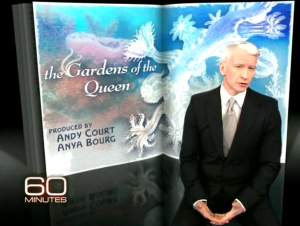
60 MINUTES’ “Gardens of the Queen,” with Anderson Cooper named as Finalist in BLUE Ocean Film Festival 2012 (Image: CBS)
The 60 MINUTES presentation of “The Gardens of the Queen” with Anderson Cooper featuring Cuba’s Jardines de la Reina has been named a finalist in the BLUE Ocean Film Festival 2012, to be held September 24-30, 2012 in Monterey, California. Cooper and the 60 MINUTES team joined Dr. David E. Guggenheim, Senior Fellow and Director of the Cuba Marine Research and Conservation Program at The Ocean Foundation and?Fabi?n Pina Amarg’s of the Cuban Center for Coastal Ecosystem Research, to explore this striking underwater ecosystem. Earlier this year, the 60 MINUTES segment, which originally aired in December 2011, won the 2012 Edward R. Murrow Award for excellence in journalism.
“The Gardens of the Queen” will be screened at BLUE, with an introduction and discussion by Dr. Guggenheim, now in his 12th year working in Cuba, along with the 60 MINUTES producers (invited) and panel of experts focused on the significance of the piece as well as the important roles that marine protected areas play in protecting the world’s ocean ecosystems. Read more
Aquarius — World’s Last Undersea Lab — Loses Funding, Faces Decommisioning
/in Featured, Ocean Newswire/by Ocean DoctorFor 25 years, the Aquarius Reef Base, an undersea laboratory that sleeps six?off of Key Largo, has served as host to numerous marine biologists and NASA astronauts. Even the Ocean Doctor has paid a visit to Aquarius. But after years of declining budgets, the Obama administration has eliminated the base’s funding, and the world’s last remaining undersea lab is faced with decommissioning — or finding its own funding. NPR reports that Dr. Sylvia Earle and other researchers are now conducting a mission of outreach and education in Aquarius to help save it.
Sea Level Rise Now Believed Impossible to Prevent
/in Featured, Ocean Newswire/by Ocean Doctor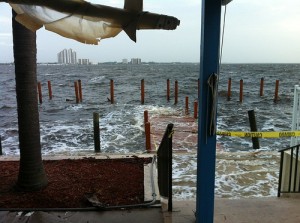
Caloosahatchee River at Gulf of Mexico, Southwest Florida (Photo by Whitney Gray, Florida Sea Grant)
The Journal Nature reports that, despite our best efforts to reduce fossil fuel emissions, sea level rise associated with climate change is unstoppable, even under the most aggressive actions on greenhouse gas mitigation. According to the study, the question now is not if sea level rise will continue but to what degree. And that’s the good news. Without concerted mitigation strategies, scientists predict that future sea level rise would be substantial and continue to rise for centuries to come.
Read more
Emperor Penguins Disappearing Due to Climate Change
/in Featured, Ocean Newswire/by Ocean DoctorScienceDaily reports that a study led by researchers from the Woods Hole Oceanographic Institution, published in the June 20th, 2012 edition of the journal Global Change Biology, predicts that as global temperatures continue to rise, penguins in Terre Adelie, in East Antarctica, may eventually disappear. Emperor penguins are perhaps the best-known and most iconic of the Antarctic region and were featured in the popular film, March of the Penguins.
Read more
Seagrass Protects Coral Reefs from Ocean Acidification
/in Featured, Ocean Newswire/by Ocean DoctorThe BBC reports on research pointing to the importance of seagrasses to protecting coral reefs against the impacts of ocean acidification, caused by carbon dioxide from fossil fuel emissions dissolving in seawater, causing unprecedented increases in the ocean’s acidity.
Infographic: Oceans of Garbage
/in Featured, News, Ocean Newswire/by Ocean DoctorThis infographic from MastersDegree.net lays it out there for all to see: Our oceans are getting more and more polluted, and most of the pollution originates from land, like plastics. These pollutants have a wide range of impacts on marine life, including getting caught up in the food chain, even at a microbial level. Scary stuff. Please share!

Fax: +1 (202) 888-3329
P.O. Box 53090
Washington, DC 20009
Just Released: The Remarkable Reefs of Cuba: Stories of Hope from the Ocean Doctor by Dr. David E. Guggenheim, President of Ocean Doctor


